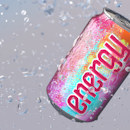
Energy Drinks: A Safe Boost?
The FDA is investigating a possible link between energy drinks and numerous incident reports that detail several deaths, serious or life-threatening reactions to the popular beverages 5-Hour Energy and Monster (Dishneau & Perrone, 2012; FDA, 2012). Some energy drinks, such as 5-Hour Energy, combine large doses of caffeine with sugar and amino-acids — a combination that could lead to medical complications, including myocardial infarction or stroke in consumers with underlying medical conditions, athletes, children and pregnant women.
The caffeine content in such beverages is said to be equivalent to the amount of caffeine in a single cup of instant coffee, which contains on average, between 60 – 100 mgs of caffeine (Coffee Detective, 2013). Consumer Reports has estimated that the caffeine content of some energy drinks has been as high as 207 mg per serving (ConsumerReports.org, 2012). Although manufacturers are not required to disclose the caffeine content of energy drinks, a group of scientists have petitioned the FDA to require that this information be listed on labels.
Caffeine is a central nervous system stimulant, and high caffeine levels can cause nervousness, insomnia, nausea, vomiting, tachycardia and hypertension. Scientists at Duke University Medical Center are also investigating the mechanism in which caffeine interferes with the process that moves glucose from the blood and into muscle. It is thought that caffeine may trigger the release of adrenaline, which in turn, boosts blood sugar levels and can lead to the development of diabetes (Feinglos & Surwit, 2008). Caffeine also releases free fatty acids from adipose tissue, and acts on the kidneys to increase urination, which can lead to dehydration (American Heart Association, 2013).
Caffeine is not the only concern with energy drinks. Researchers are now examining the long-term effects of the high amino-acid content in the beverages, along with the potential side effects of other additives. Some energy beverages contain the amino acids tyrosine, L–phenylalanine and taurine, all of which play an important role in energy metabolism.
Tyrosine is a non-essential amino acid, necessary for the synthesis of brain neurotransmitters, which are important for nerve conduction and mood stabilization. However, researchers at the University of Maryland Medical Center believe that it is extremely rare to find an individual with low tyrosine levels, unless they suffer from phenylketonuria (PKU). Although some athletes take tyrosine supplements to improve physical performance, research does not support the benefits of this use.
Tyrosine supplementation can cause restlessness, anxiety and insomnia. In large doses, it can also cause tachycardia (University of Maryland Research Center, 2013b). Taking tyrosine and caffeine together may exacerbate the side effects of each, and caution should be employed when combining these two active ingredients.
In addition, some energy drinks contain high levels of Vitamin B. Although this vitamin is water-soluble, excessively high doses can cause nerve damage, tingling, and numbness in the arms and legs. One shot of these energy-boosting drinks can contain as much as 150% of the recommended daily intake of niacin.
The FDA continues to investigate reports of illness, injury or death linked to energy drinks, and encourages consumers and health care providers to report adverse events that may be related to the FDA's MedWatch Adverse Event Reporting Program.
References:
American Heart Association. (2013). Caffeine and Heart Disease.
Coffee Detective (2013). Caffeine in Coffee.
ConsumerReports.org. (2012). Can 5-Hour Energy kick your afternoon slump?
Dishneau, D. & Perrone, M. (2012). Associated Press [AP]. AP.org. The Big Story. FDA: 5 Reported Deaths with Monster Drink Link.
Federal Drug Administration [FDA]. (2012). Energy Drinks and Supplements: Investigations of Adverse Event Reports, November 16, 2012.
Feinglos , M. & Surwit, R. (2008). Cutting Caffeine May Help Control Diabetes. Science Daily.
5 Hour Energy. (2013). How to Use 5-hour ENERGY® shots.
University of Maryland Research Center. (2013). Tyrosine. Complimentary Medicine.
University of Maryland Research Center. (2013b). Plasma Amino Acids Overview. Medical Reference Encyclopedia.




